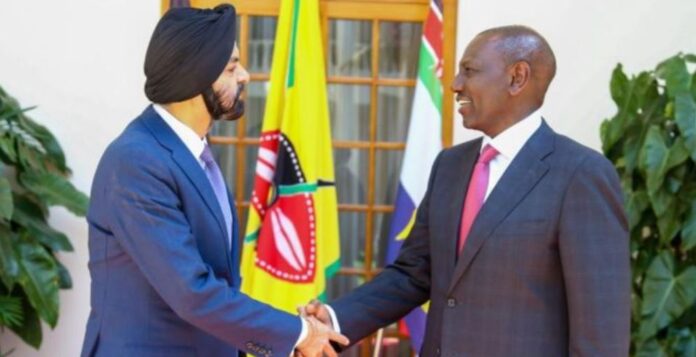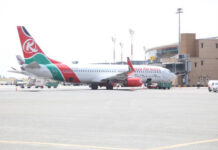The World Bank has recommended sweeping reforms to Kenya’s public sector spending, including a two-year hiring freeze and a 50 percent reduction in travel-related expenses for public officials, in a bid to rein in the ballooning national wage bill.
In its latest Public Finance Review for Kenya, the multilateral lender warned that inefficiencies in human resource management and payroll control are driving unsustainable expenditure levels across national and county governments. The report highlights that only six out of 47 counties met the legal wage-to-revenue ratio of 35 percent in the last fiscal year, underscoring systemic fiscal pressures.
With public servants numbering nearly one million in 2024, 22 percent of whom are employed by counties, the World Bank urged the government to prioritize a comprehensive skills audit and redeployment of existing personnel over new hiring. “Institutional fragmentation must be addressed by redeploying existing staff, rather than adding new ones,” the report stated, while recommending exceptions for critical sectors like education and healthcare.
To modernize operations and cut down administrative redundancies, the World Bank also called for accelerated automation of public service processes. This, it says, would create fiscal space and improve service delivery, especially in sectors vulnerable to climate change impacts.
A central theme of the report is the urgent need to overhaul Kenya’s payroll system. Citing the extensive use of manual payrolls, which are vulnerable to manipulation, and ineffective succession planning that delays retirements, the Bank estimates that up to Ksh.5.38 billion could have been saved between 2019 and 2023 by eliminating ghost workers alone.
The report further criticizes the country’s “incoherent” allowance structure, revealing that allowances account for about 40 percent of the wage bill. Irregular domestic and international travel allowances cost the government an estimated Ksh.3.35 billion over four years, while irregular allowances, unapproved pay structures, and noncompliance with salary guidelines collectively cost billions more.
In particular, the Daily Subsistence Allowance (DSA), or per diem, was flagged for abuse, with Kenya spending Ksh.6.2 billion on DSAs in 2022/23, about a third of its total Ksh.19.6 billion travel budget. The World Bank recommends harmonizing DSA rates and regulating in-country workshops and foreign travel to curb unnecessary spending.
Notably, the Bank suggests aligning international per diem rates with UNDP standards to save money. For instance, a Kenyan official’s average daily allowance in the U.S. stands at $513 (Ksh.66,353), which could be reduced to $460 (Ksh.59,498) or even $326 (Ksh.42,119) under standardized rates.
The recommendations come as Kenya’s Parliament reviews the 2025 Finance Bill and the 2025/26 budget, which aims to cut Ksh.130 billion in spending. The Treasury is targeting a budget deficit of 4.5 percent of GDP, down from 5.1 percent in the current fiscal year, while avoiding new tax hikes after last year’s nationwide protests.
With fiscal pressures mounting and the wage bill consuming a growing share of public resources, the World Bank’s proposals underscore the critical need for structural reform to safeguard Kenya’s economic stability.
Written By Rodney Mbua














![[Full List] – Safaricom, Absa and Britam Named Among Top Employers for 2026](https://uzalendonews.co.ke/wp-content/uploads/2026/01/Screenshot-2026-01-15-190157-218x150.png)




